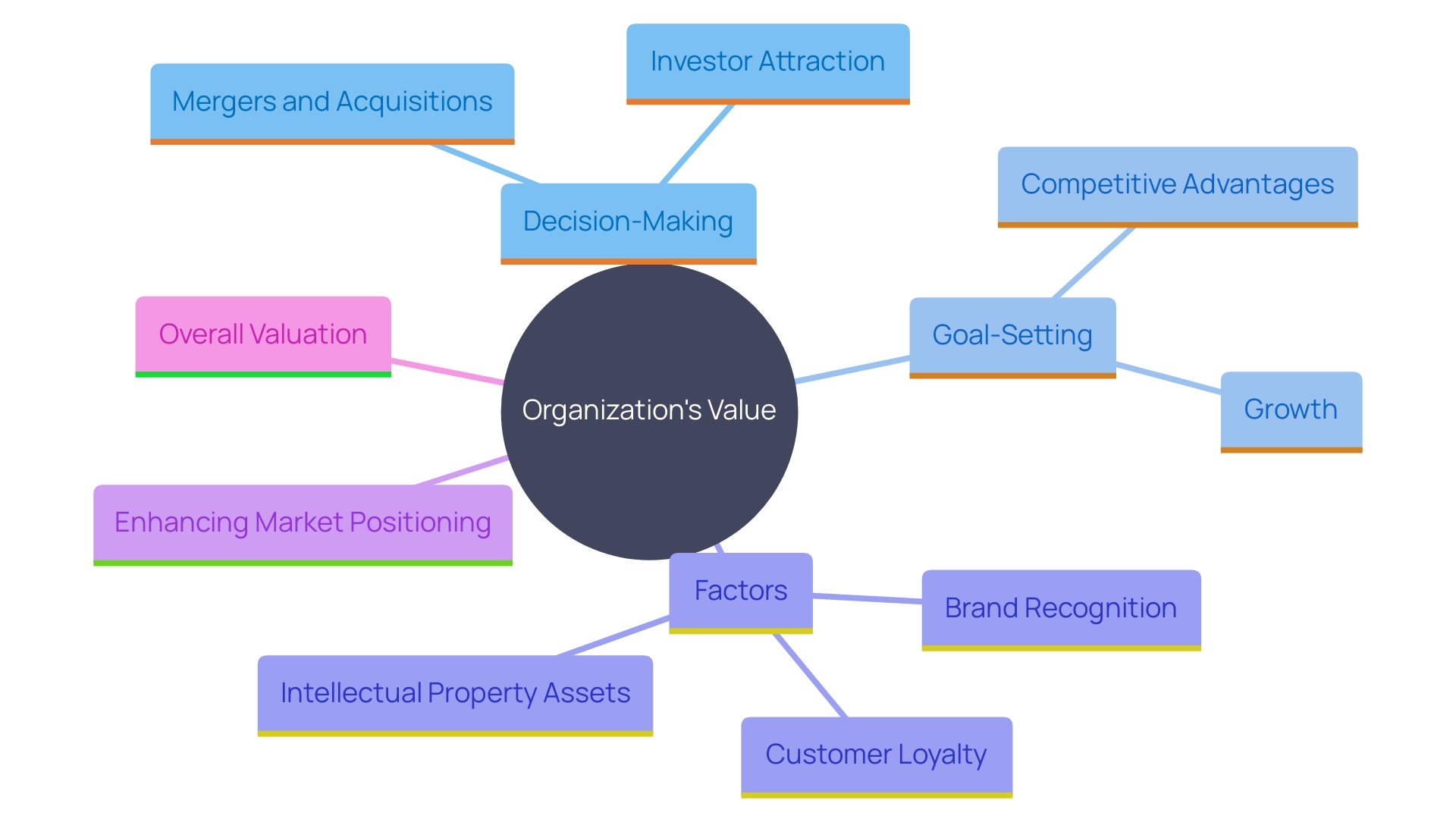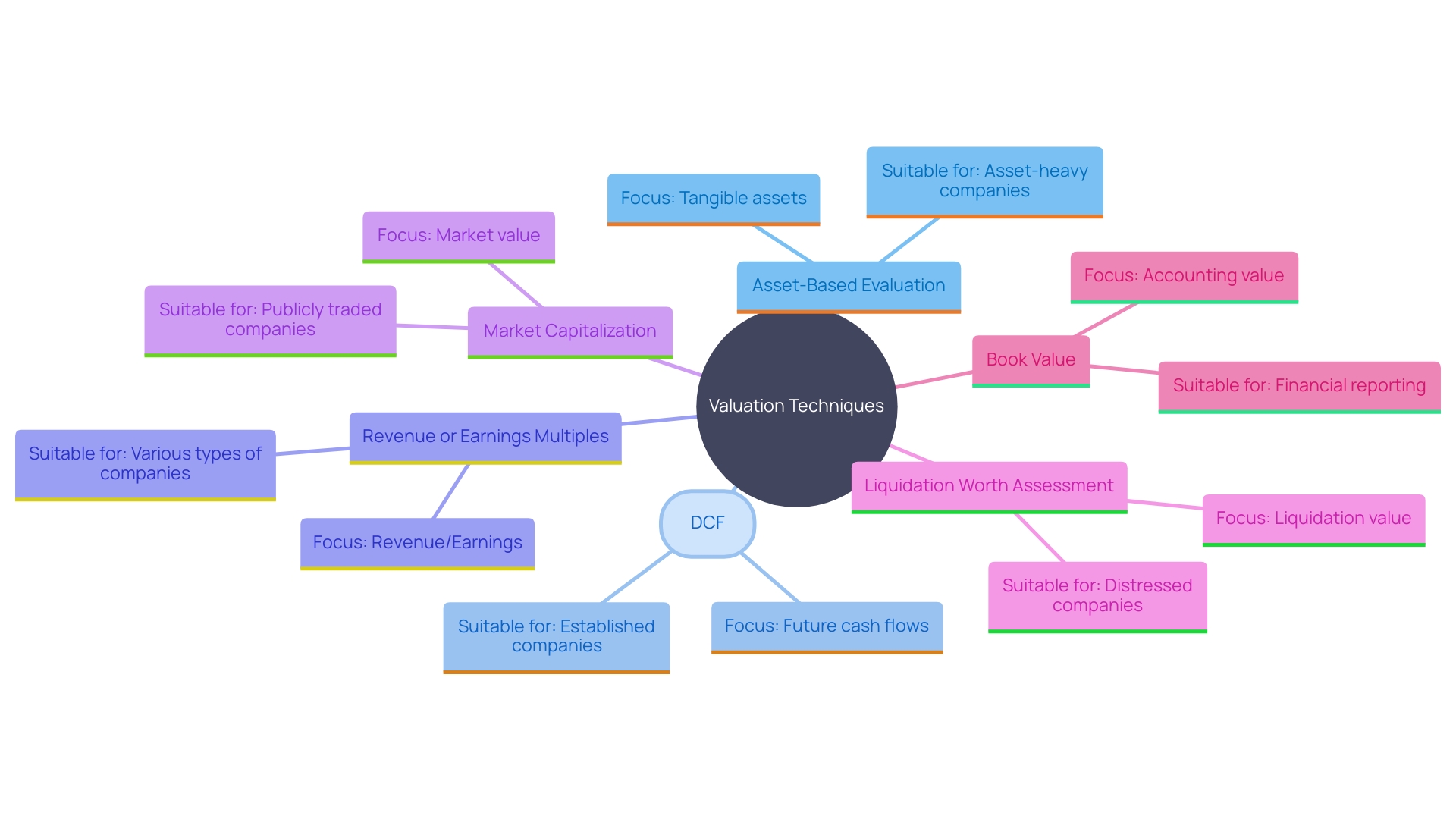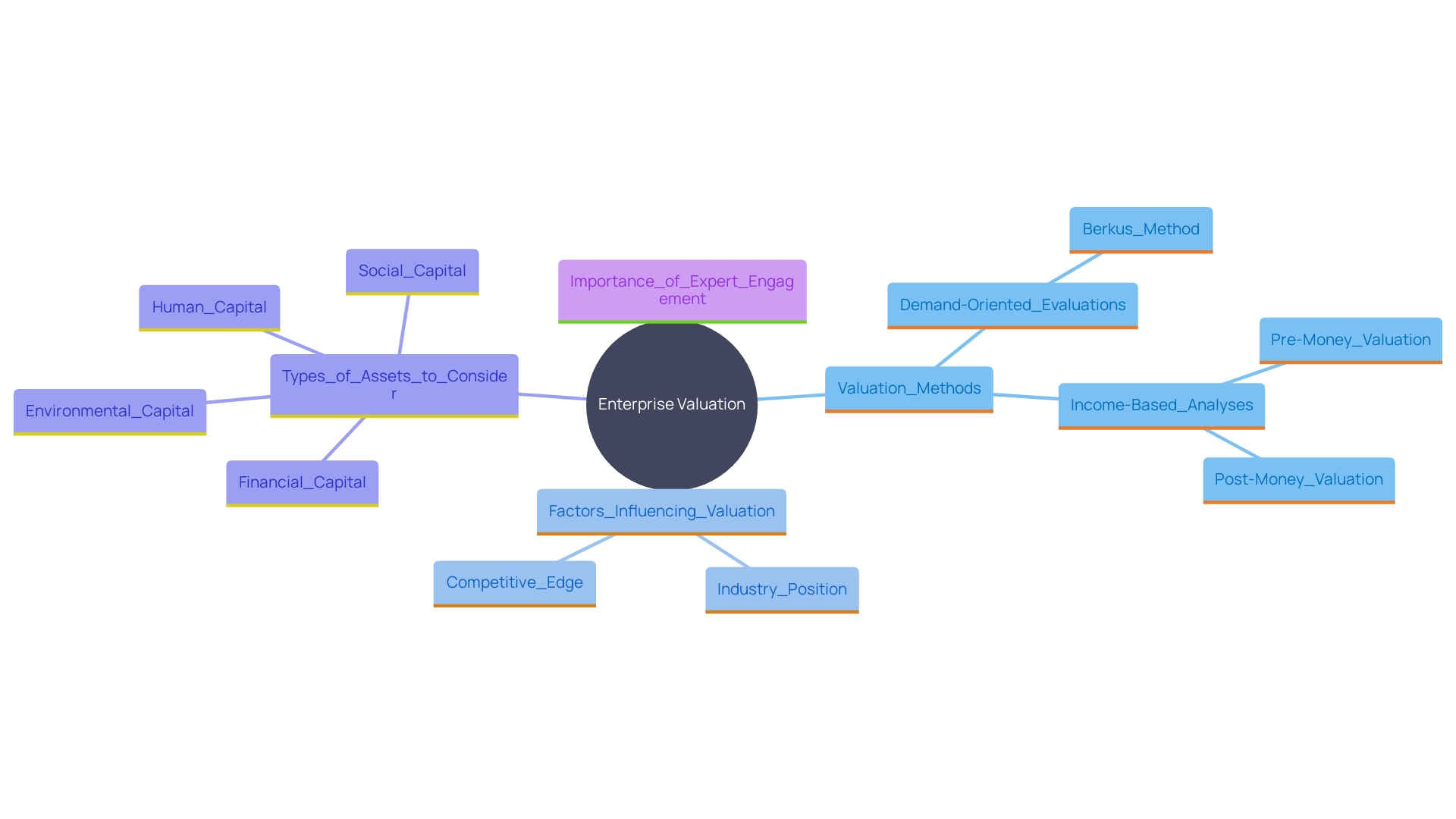Introduction
Recognizing the worth of a company plays a vital role in strategic business planning and decision making processes like mergers and acquisitions and attracting investments while establishing achievable growth objectives is crucial too. Assessing a companys market standing and unique assets along, with its edge can greatly boost bargaining strength and increase profitability.
This article discusses the significance of understanding the value of your company and delves into methods used for business valuation while emphasizing important factors that impact valuation and providing guidance on how to effectively conduct a valuation process for your business needs – whether you're a business owner or an investor mastering these insights can lead to long lasting growth and prosperity.
Why Knowing Your Company's Value Matters
It's important to have a grasp of your organization's value for several reasons; it guides decision making when it comes to selling or merging with other businesses or acquiring new ones; knowing the value also attracts investors and helps secure loans; and it sets achievable goals for growth. Comprehending your organization's valuation can provide you the advantage in negotiations and assist you in maximizing profit opportunities.
Assessing where an organization stands in the industry is essential for understanding its value in the sector; perspectives indicate that a strong position often relates to a competitive advantage demonstrated through loyal customer bases, unique product offerings, and advanced technology. To make a precise evaluation, consider the entity's share, growth trajectory, and the durability of its competitive edge. Key factors to examine include brand recognition, customer loyalty rates, and presence relative to competitors. Businesses that frequently introduce new concepts and adapt to changing industry demands generally receive higher valuations.
'The worth of an organization is closely tied to its property (IP) assets and their strength and breadth play a crucial role in determining competitive advantage and investor trust in the market positioning of the organization's IP portfolio includes registered rights such as patents and trademarks as well as unregistered rights like trade secrets and proprietary technologies thorough evaluation involves examining legal safeguards relevance to revenue sources and alignment, with strategic objectives.'.

Common Business Valuation Methods
Evaluating an organization’s worth is essential for both entrepreneurs and investors as it offers important insights into the entity’s significance through a variety of techniques tailored for different circumstances and viewpoints.
One way to assess an organization's worth is through asset-based evaluation, which takes into account the net worth of assets after subtracting liabilities; this approach is particularly advantageous for firms with substantial tangible assets.
"Discounted Cash Flow (DCF); DCF analysis assesses an organization's value by forecasting its cash inflows and adjusting them to present worth, making it a favored approach for firms with stable cash flow trends."
Estimating the value of a business can be accomplished through revenue or earnings multiples, which involves applying a multiplier to its revenue or earnings to determine its worth. This method is commonly employed for enterprises in sectors experiencing growth, where the potential for earnings plays a significant role in the valuation process.
Market capitalization is calculated by multiplying the stock price with the total number of shares available, in the market a simple method used primarily for publicly traded firms.
The liquidation worth assessment determines the worth of a company's assets, in the event of liquidation commonly applied in situations of crisis or impending bankruptcy.
Book value is determined by looking at a firms balance sheet to determine the difference between its assets and liabilities. A method widely employed for companies, with physical assets.
To determine the method for your organization's needs means understanding these approaches thoroughly to enhance your enterprise's overall worth effectively over time as the operational environment changes and valuation methods adapt to stay current and valuable for modern enterprises.

Factors Influencing Business Valuation
Evaluating the worth of an organization relies heavily on essential elements that jointly affect its total value in the commercial arena. There are factors like the entity's size and profitability that significantly contribute to establishing its assessment. Larger and more profitable enterprises typically attract valuations due to their firmly established position and financial strength.
A recognized presence in the industry and pace of growth are signs that illustrate an organization’s ability to develop and draw in additional clients from its target segment. For instance, a tech company with a presence in the industry frequently shows a significant competitive advantage clear through its loyal customer base, unique product range, and advanced technology. Evaluating a business's share of the industry growth trend and capacity to uphold its edge offers important perspectives on its future potential, for ongoing success.
One crucial factor to consider is maintaining a competitive edge in the market landscape It includes elements, like brand visibility customer loyalty levels and market expansion compared to rival firms Businesses that continuously innovate and adjust to shifting market needs whether by investing in research and development or making strategic acquisitions often hold higher esteem
The potential for growth also has a big impact in this context to! Organizations that have a plan for expanding their market share and increasing their profits are viewed as appealing investments, to investors and stakeholders alike. This growth potential is generally supported by intellectual property rights that provide entities an advantage. Patents, trademarks, and distinctive technologies not only protect an entity's inventions but also enhance investor confidence and market position.
By grasping these factors thoroughly one can gain an understanding of enhancing the attractiveness and value of a company; thus laying the foundation, for long term development and prosperity.
Practical Steps for Conducting a Business Valuation
Valuing an enterprise effectively involves taking a thorough approach right from the start. Firstly gather records and operational information spanning the last few years to create a strong basis for evaluation. This data plays a role in grasping both the past success and current standing of the business. Utilize valuation methods, such as demand-oriented evaluations or income-based analyses to interpret these details effectively. Each method provides viewpoints and can be tailored to account for factors that are significant to your organization's requirements, such as your position in the industry or your competitive advantage and unique resources.
When evaluating your business's worth, it's essential to consider your position in the industry landscape, as it significantly affects how much your business is valued. A strong presence in the industry typically accompanies a competitive edge shown through loyal customers, unique products, or advanced technology. It's important to look at factors, such as share, growth patterns and how sustainable your competitive edge is. Being creative and staying attuned to market changes can enhance the worth of your enterprise.
In addition to this combining types of assets. Such as money related resources, environmental resources, human resources and social resources. In the assessment procedure offers a broader perspective, on the company's actual value. This all encompassing approach enhances competitiveness boosts the strength of business strategies and empowers individuals involved to make thought out choices.
Engaging with experts guarantees that your appraisal is trustworthy and thorough. These professionals offer perspectives and aid, in simplifying intricate data into practical insights to improve the precision and dependability of the appraisal.

Conclusion
Knowing the worth of a company is crucial for making decisions in todays fiercely competitive business world.It guides decisions on mergers and acquisitions as wel as attracting investments. Also lays the groundwork, for long term growth.By assessing market position,distinguishing assets and competitive strengths businesses can boost their bargaining power. Capitalize on profit prospects.
The ways to determine a companys value vary widely and are crafted for situations and goals—ranging from valuing assets to analyzing discounted cash flows and market capitalization—picking the right approach is vital, for a precise evaluation of a businesss value. Understanding the elements that impact valuation—such as profitability, market standing and growth prospects—can also help businesses elevate their appeal to investors and stakeholders.
Taking actions to carry out a valuation helps in gaining a comprehensive insight into where a company stands within the market landscape.Gathering information prioritizing different valuation methods and taking into account the distinct characteristics of the business can result in making more knowledgeable choices.Seeking guidance from professionals, in the industry can offer perspectives that boost the credibility of the valuation procedure.
By understanding these principles and applying them effectively to their operations and strategies companies can establish a solid groundwork for sustainable development and achievement thus unleashing their complete capabilities, in the competitive business landscape.




